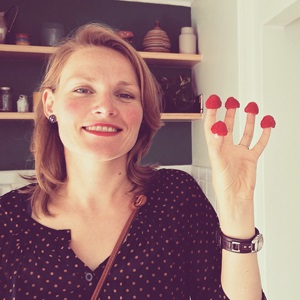
Although I felt a bit awkward because I didn’t really want to talk to my dad about it, a slight embarrassment was the worst thing that ever happened to me on my period. I’ve never dropped a sanitary towel into a river only for it to dry up like that advert in the 90s and for reasons of style I’ve managed to avoid white pants altogether so those have never felt like a risk. In essence, a period isn’t a big deal.
That isn’t to say that it’s not taboo, or that it’s easy to talk about. As Rebecca Davis recently said, shame around menstruation is ‘you have to take your whole handbag to the toilet when you have your period instead of confidently marching through the office brandishing a tampon’. An honest assessment is that everybody would really rather not talk about it. But, I think we should.
Firstly, for many women and girls, their period is not a celebration but a limit to their education. A period in a context where sanitary products are excessively expensive (an average period costs me almost R60 in tampons) a period might stop a girl from attending school. This is most frequent in areas where schools do not have adequate sanitation. The fact that girls miss school because of a failure of the state to subsidize sanitary products, or equip schools with adequate water and sanitation, is simply unacceptable.
Secondly, if we treat periods as taboo women will not discuss them, and this can affect their sexual and reproductive health. If girls and women do not receive information about their bodies and sexual and reproductive health, there is the chance that they will not see an absent period as linked to a pregnancy. Many women die each year in South Africa during childbirth. Most deaths are preventable, and unnecessary.
What I mean by this is that many of the conditions that led to their death could have been managed or avoided if they had sought antenatal care earlier. But, if we don’t teach girls to interact with their period and understand what it represents, this is unlikely to happen.
Two social media campaigns and a slam poet I watched online have recently solidified my thoughts about talking about periods and made me want to talk about it more. The slam poet blew my mind she single-handedly addresses every stupid thing anyone has ever said about periods. With aplomb.
Rupi Kaur, poet from Toronto, recently posted a picture of herself on Instagram where her period had leaked through onto her pyjamas and bed. Instagram promptly removed the picture, something that reflected an experience that many women have had. She posted it again, and they removed it again. In an act of solidarity, women around the world began reposting her picture to support her call to Instagram to stop being afraid of women’s bodies. Eventually, they won and Instagram allowed for the picture to be posted.
Finally, German artist, Elonë began sticking sanitary towels with messages written on them around her town to raise awareness of the fact that most people are more disgusted about menstruation than they are about sexual violence. These same messages written on paper or posters may not have been noticed, but because they were linked to the shock of women’s sanitary products they caught the world’s interest.
Every single woman of us between puberty and menopause has experienced a period. In South Africa 52 percent of the population is female. We are the majority. It is time to stop being embarrassed about the very thing that makes a population possible at all.
Follow Jen Thorpe on Twitter.
Follow Women24 on Twitter or like us on Facebook.




 Publications
Publications
 Partners
Partners














